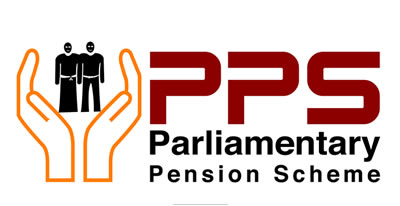Report on Member Training 8th June 2018
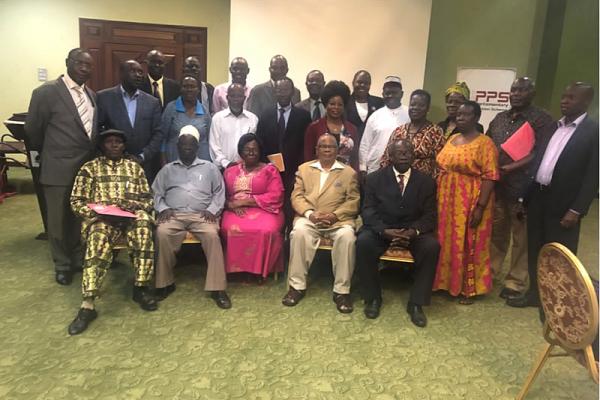
Executive Summary
The Board and Management of the Parliamentary Pension Scheme developed a programme to enhance knowledge and skills of its members to enable them implement appropriate retirement planning strategies to realize a vision of “A society of dignified retired citizens”. The 6thseminar was organised for Members of Parliament who joined in May 2016. The session took place at the Conference Hall A, Parliament Building, on 8th June 2018. The topics covered included financial insights on retirement, The Parliamentary Pension Scheme, Principles of Healthy living and the Parliamentary Pension Scheme Loans Product.
The Seminar was attended by 57 Members of Parliament.
The Chief Operations Manager, Parliamentary Pension Scheme, provided the welcome remarks.
The financial planning theme emphasized the seven insights people wished they knew about retirement and highlighted on the various services offered by the Scheme and how these could be accessed. The Medical training targeted practices that positively foster good health and life style to avoid health related challenges.
Among the recommendations was the importance of Members planning their retirement using the resources available to guarantee sustainability of their financial, social and health requirements for a comfortable retirement life.
1.0 Introduction
As part of realizing its mandate of provision of member education, the Parliamentary Pension Scheme organised a one day member’s seminar on 8th June 2018 at the Conference Hall A, Parliament Building. The topics encompassed financial insights on retirement, the Parliamentary Pension Scheme, principles of healthy living and the Parliamentary Pension Scheme Loans Product.
1.1 Objective
The general objective of the session was to enhance Members knowledge and skills to effectively plan for retirement.
1.2 Methodology
The seminar took the form of formal presentations and highly interactive discussions which gave members the opportunity to share real life experiences of retirement.
1.3 Specific Objectives
• Sensitize Members on retirement planning;
• Sensitize Members on operations of the Scheme and benefits offered; and
• Provide knowledge on good health practices.
2.0 Proceedings of the activity
2.1 Welcome Remarks by the Chief Operations Manager
The Chief Operations Manager, Ms. Nightingale Mirembe Ssenoga welcomed Members and facilitators to the seminar and thanked them for honouring the invitation.
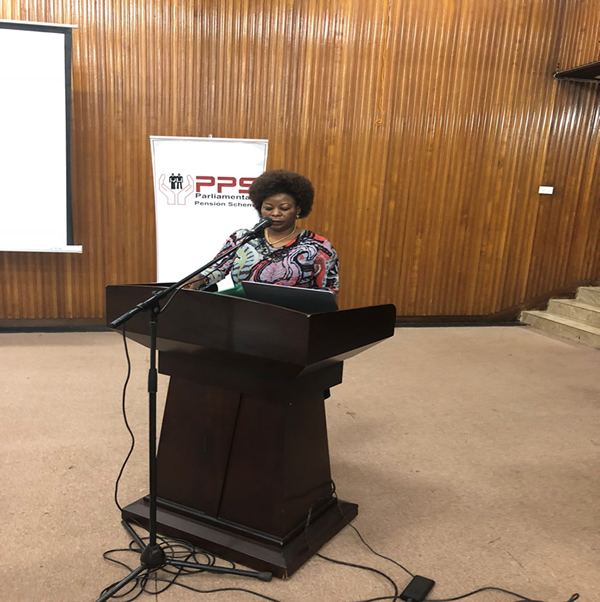
Ms. Nightingale Mirembe Ssenoga, Chief Operations Manager#
She informed Members that the session had been organised as part of the Scheme’s efforts to ensure the realization of its vision. She however stressed that it was very unfortunate that such seminars had always been poorly attended despite several appeals to members to attend. She requested members to take back the message to those who failed to turn up and encourage them to always spare time for such important sessions. She warned that members often realize the importance of such interactions when it’s too late. She wished members a fruitful session.
2.2 Highlights of Presentations
Presentation 1: Financial insights on Retirement
The presentation was made by Mr. Ofumbi Oscar of CACTUS Wealth. He requested Members to reflect on what they have so far done and how much they were prepared to successfully continue with life in retirement. He reminded Members that time would come when there would be no more employment income, but with, tax liabilities and other operational expenses to settle. He implored Members to meditate on what strategies they had so far put in place to maintain a modest income to afford such expenses.
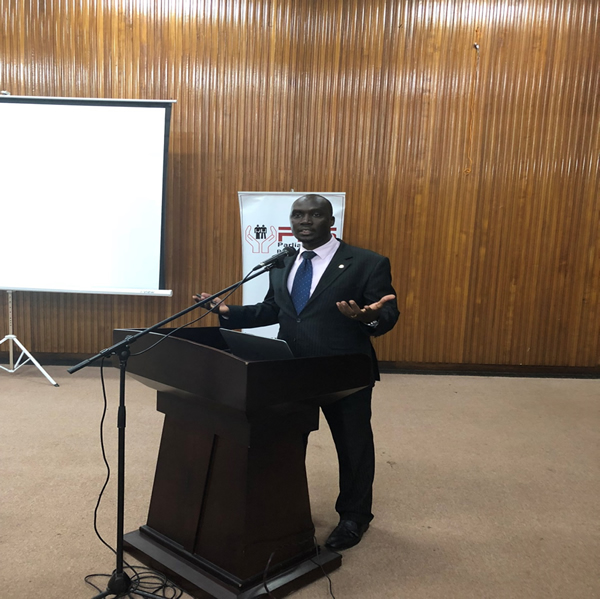
Mr. Ofumbi Oscar, Managing Partner, CACTUS Wealth
It was essential for members to consider budget preparation to appreciate the cash inflows and out flows of different projects. Planning for one’s health was a key prerequisite given the health challenges which arise with advanced age. With the escalating costs of health care, insurance companies were not willing to take on the elderly above 65 years, which was a very big challenge. He cautioned members to adjust to positive life styles such as walking, exercising and eating healthy. He highlighted on the seven insights people need to know about retirement:
(i) Knowing that there will be no more income,
(ii) Minding one’s Health,
(iii) Putting up investment strategies,
(iv) Liquidity may dry up,
(v) Tax obligations never go away,
(vi) Consider requirements of the planning authorities and
(vii)Justify one’s life journey and hard work.
He emphasized the need for members to avoid unnecessary expenses and learn to prioritize. This would enable savings and investment to sustain a continued cash flow.
Members were advised to;
Seek assistance from Asset Managers and financial experts to guide on investment options;
Engage in various investments to spread the risks, “do not put all eggs in one basket”;
Have savings as part of the expenditure plan;
Create health care accounts with health care powers of attorney;
Assess cash flow needs using a cash flow tool and maintain an emergency fund. This will enable one sail through seasons of low liquidity. Hold 50% of assets in cash or near cash equivalent;
Get into a personal income tax filing class. Learn computer skills and if possible hire a tax advisor;
Put in place strategies to address the three biggest concerns of; (i) Income (ii) Paying for Health Care (iii) Meeting Recurring Obligations. These can be done through the following;
Prepare a will and seek professional help to ensure its thorough in legal content.
Presentation 2: The Parliamentary Pension Scheme
The presentation on operations of the Scheme was done by Mr. Edward Basheka, the Benefits Administration Manager.

Mr. Edward Basheka, the Benefits Administration Manager
He enlightened members on the Governance and Management structures, composition of the Board and the Scheme design. He also emphasised the duties of a Member and how they could access their benefits. He enlightened Members on the benefits formula used to determine ones Scheme credit and other benefits. He however indicated that the biggest challenge the Scheme was facing was that of Members failing to update their information and consequently failing to pay benefits promptly. He emphasized the urgent need for every Member to enrol with the Scheme and nominate beneficiaries to avoid such challenges.
Members were advised to;
a) Prepare retirement plans which included savings, investments, health and insurance among others;
b) Attend Annual General Meetings , seminars and help desk sessions organised by the Scheme for Members;
c) Fully update their files to avoid contentions in case a Member passed on;
d) Adjust their lifestyle by being responsible;
e) Teach their dependants how to manage finances and make better financial decisions;
f) Prepare wills and indicate desired course of direction on the retirement benefits upon death to rule out misuse.
Presentation 3: Principles of Health Living
Dr. David Ndawula of St. Francis Hospital Nsambya presented the facts of Health Living. He informed members that the elderly population was on the increase and anticipated that by 2025 people above the age of fifty five would be two million. Uganda as a country therefore needed to build social security and better health services by creating a robust health system. He warned that the Parliamentary Pension Scheme was not adequate to be looked at as a sufficient source of survival after Parliament.
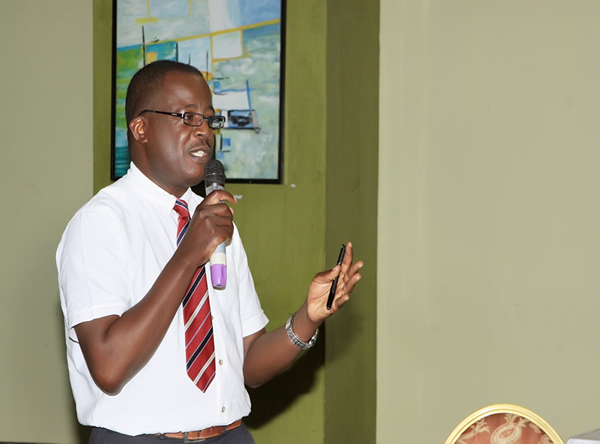
Dr. Ndawula, Medical Practitioner
He informed Members that as they grow older, the rate of breakdown supersedes the rate of repair. Investment in one’s health should be prioritized to reap the benefits of well-being bearing in mind that “one reaps what he sows”. Old age comes with vulnerability and weakness coupled with health challenges of non-communicable diseases such as cancer, diabetes, and hypertension. Living a healthy life style may prevent such diseases.
The environment was continuously polluted and deteriorated on a daily basis. In a few years there would be many retirees in the fund. The Scheme should therefore equip members with appropriate personal retirement plans for self-sustainability and not left to the will of Government. The presentation focused on the inescapable facts of life, stages of life, the physical changes one goes through as they age, the importance of planning for retirement and the principles of health living. He stressed that our bodies were the biggest priority in life and health was not just the absence of disease, but also the emotional and spiritual wellbeing of an individual, free from stress and depression. He underscored that for individuals to fare on well a number of factors such as financial security, supportive network of friends and family, good health, internally driven sense of motivation and degree of self-control of the processes needed to be in place. He warned that what people do will affect their standard of health later.
Members were advised to;
Eat right( an abundance of micronutrients, only adequate macronutrients, relatively low calories, high fibre, low saturated and trans fats, low toxins) avoid meats.
Drink a lot of water. Water is critical to life, every day one loses about 1.5 litres of water in the body.
Have regular exercises and maintain a good posture. (Walking, dancing, swimming, building muscle, aerobics for 30 – 45 minutes at least three times a week).
Identify and deal with stress using the (4A’s) avoid unnecessary stress, alter your situation, adapt, and accept what you cannot change.
Live a balanced life by not spending too much time on one thing at the expense of others. Consider building and maintaining the seven (F’s) as priorities in life which include; friends, faith, family, fitness, fun, firm/work, finances.
Build resilience, one can never predict when problems or challenges will come.
Have regular medical checks.
Avoid alcohol and substance abuse.
Reduce the time spent seated every day by three hours to increase life by two hours.
Avoid what was unnecessary.
Be a role model by leaving behind a good legacy for the community.
Stick to your roots. The deeper the roots the stronger the tree.
Reduce time watching television to less than two hours daily. Television imparts bad morals and values in children. Parents should therefore ensure that children’s access to television is regulated.
Get involved in intellectual discussions and read books to keep the memory active.
Consider starting or building a business as well as pursuing part-time or full time volunteer employment opportunities.
Support the increase of salaries for doctors in Uganda.
Presentation 4: The Parliamentary Pension Scheme Loans Product
Mr. Angulo Denis Chriss, the Loans Officer, gave an overview of the loans product which was a new investment product for the Scheme. He expounded on the eligibility for a Member to qualify for a loan which included i) A Member of Parliament with no pending election petition, ii) A Member of staff of the Parliamentary Commission on permanent and pensionable term, iii) Reasonable net monthly emoluments from which loan repayment deductions would be made.
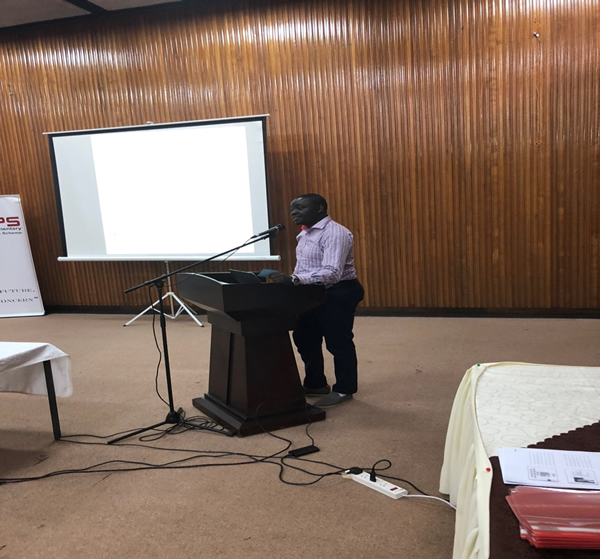
Mr. Chriss Angulo, the Loans Officer
The process for accessing a loan included filling application forms, providing a copy of recent pay slip, passport size photo and a certified loan statement in case a Member had a running loan from a financial institution.
Applications were then presented to the Loans Committee for approval and beneficiaries sign letters of acceptance and loans agreement before funds are disbursed to their respective accounts.
He spelt out the challenges faced which included inadequate funds for loans due to restrictions by URBRA regulations capping the assets class for loans to only 5% of total assets, dissatisfaction of members due to the lengthy vetting process and the delayed signing of loans agreements and letters of offer by Members. He recommended that Members support amendment of the PPS Act and regulations as well as prompt signing of letters of offer and loans agreements.
3.0 Issues that emerged from the discussions
Short lined businesses
a) Members requested to be guided on how they would come up with effective investment options to avoid loss of funds given that most businesses they tried to venture into collapsed. They were advised to seek expertise from financial experts or Fund Managers for guidance on risk free investments. Such investments among others included treasury bills and bonds, fixed deposits and savings. They were cautioned to venture into things they were passionate about, find ready-made solutions such as mobile money and run them professionally.
Inadequate Loans
b) Clarification was sought on why the loans scheme was not operating at full capacity to rescue Members from getting loans from banks and money lenders. It was clarified that although the Scheme was working out modalities to enhance the funds available for loans. Members needed to be cognizant of the Schemes mandate which called for strategic investments to ensure considerable rates of returns to members.
Un-updated member files
c) Members felt that Management of the Scheme was not doing enough to ensure Members files are updated. Management informed Members that in this regard, it had written letters to the affected members, made announcements during the Annual General Meeting and seminars but the response from members was very slow.
Computation of Annuities
d) Members requested to be sensitized on how annuity was arrived at. It was explained that this was determined by the Actuary based on age of a Member and factors that affect the standard of living.
Fear of misuse of benefits by beneficiaries
e) Members wanted to know what strategies they could consider to ensure their benefits were not misused by beneficiaries when they passed on. They were advised to sensitize their dependants on proper financial planning and management. It was critical for Members to write wills and indicate the intended direction on the fate of their benefits.
Death of all Beneficiaries
f) A question was raised on what would happened in a situation where all nominated beneficiaries died. It was clarified that the Scheme resorts to the available laws to address such situations specifically the Succession Act. Members were however reminded that the benefits were not part of the deceased estate which had resulted to people acquiring letters of administration yet they were not nominated as beneficiaries. This had caused nominated beneficiaries not to receive their benefits.
Dangers of cooking oil
g) Members inquired on the health implications of using cooking oil. It was clarified that some cooking habits such as the use of high temperature denature food, some oils have been labelled unsafe. It was critical to consider using plant oils but watch the labels to take cognisant of the dangers bearing in mind that people who ate healthier at a younger age lived longer. Members were equally advised to be good examples to their children by teaching them good eating habits to ensure they grow up healthy.
Increase cases of backache victims
h) Back problems were on the rise. Members requested how this could be addressed. This was on the rise because most people today sat for longer hours. Members were advised to get up every 90 minutes for 5-10 minutes to stretch their bodies.
Good sex life
i) Given the demanding nature of the roles and responsibilities, some Members were faced with a challenge of lack of good sex. Today’s marriages were increasingly becoming violent due to lack of effective communication. Members were advised to work on finding good ingredients to their marriage life such as, good communication, having time to enjoy with the family, keep romantic and avoid being too physical during sex. Members were also advised to lose weight to keep physically fit and feel good. The biggest element was to love their dear ones for who they were.
Sprayed vegetables
j) Most of the vegetables sold and consumed on the market were sprayed during cultivation. Members worried of the dangers involved. Members were advised to thoroughly wash the vegetables before cooking them and use chorine based disinfectants or vinegar to minimise the effects. Members were further advised to grow their own vegetables in the compounds for family consumption which wasa sure way to guarantee safety.
Very expensive appropriate cooking pots
k) A company called salad masters had introduced in the market cooking pots made out of titanium which were very expensive ranging from $ 3,000 – $ 7,000. These were being marketed as very healthy for cooking. It was clarified that these were very high quality cooking utensils though not affordable on the Ugandan market. Aluminium was equally a good product to be used though a lot of fake aluminium products were being produced in the market. Caution was made to the legislators to ensure enforcement of regulation of standards.
When to retire
l) Guidance was sought on what was the best age to retire from employment. It was explained that in the ideal word, no one should be employed forever. It was crucial for Members needed to work towards having a life that they are in control of ensuring self-development and sustainability at a young age with diversified sources of survival.
Menopause
m) Members requested to know what age a person reaches menopause. They were enlightened that in women it occurs as soon as one stops getting periods. In men this occurs when hormones go down and they develop erectile dysfunctions due to weakening muscles. They were advised to seek a doctor’s intervention to address such challenges.
Increasing cases of cancer victims
n) Cancer was on the rise with more and more people suffering from the ailment. Members were informed that this was due to the increase of micro waves, industrial exposures, traffic on roads and food preservatives.
Safety of Saunas and massage parlours
o) Members also requested for guidance on whether the sauna and massage were weight reduction solutions. They were informed that these were good for relaxation and improving blood circulation. Getting physical with exercises such as running, skipping and dancing were better weight reduction strategies. Members were advised to adopt a preventive rather than curative approach to health maintenance.
Food supplements on the market
p) Use of supplements was on the increase and members wondered why more and more people where consuming food supplements. It was clarified that these originated from overseas as a result of soil infertility and a changed agricultural system. Members were advised to limit the use of supplements by keeping the soils healthy and feeding on good food. Uganda as a country had to invest in research to find home grown solutions to supplements.
4.0 Closing Remarks
The Chief Operations Manager thanked the organizers, facilitators and Members for attending the seminar. She commended Members for their active participation and hoped that the training would enable them make better retirement decisions. She requested Members to attend such sessions and share the lessons learnt with others.
5.0 Conclusion
Members appreciated that training and testified that it was long overdue. They decried that most of their colleagues were blinded by social status forgetting to think through the realities of life. It was essential for the Scheme to organize similar seminars quite often and for members who attended to take back the message to those who were unable to attend.
Finally it was recommended that Scheme comes up with more practical approaches of imparting retirement planning knowledge to ensure realization of its vision.
6.0 Obituary
On this day at 7.00 pm, Hon. Ibrahim Abiriga (seated 1st in the front row of the group photo on page 1) Member of Parliament for Arua Municipality was gunned down on his way home in Kawanda, Kampala, Uganda. May his soul rest in eternal peace.
